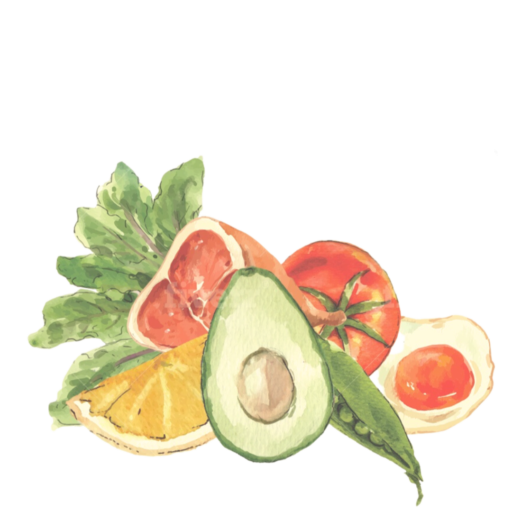Have you ever heard of your gut being referred to as an ecosystem? It’s true! Inside your gut lives a vast community of trillions of bacteria, known as the gut microbiome, a gut garden! It plays a crucial role in your overall health and well-being. But maintaining a healthy gut isn’t just about probiotics, the “good bacteria” you often hear about. Here’s where prebiotics and postbiotics come in, forming a powerful trio that nourishes and protects your gut garden.
Prebiotics: The Fertilizer
Think of prebiotics as the rich soil in your garden. These non-digestible fibers, found in fruits, vegetables, and legumes, act as fuel for the good bacteria, helping them grow and thrive. By including prebiotic-rich foods like onions, garlic, bananas, and leafy greens in your diet, you’re creating the perfect environment for a diverse and balanced gut microbiome.
Probiotics: The Seed Planters
These live bacteria, found in fermented foods like yogurt, kimchi, and kombucha, are like the seedlings you introduce to your gut garden. They crowd out harmful bacteria, aid digestion, and produce beneficial compounds. While probiotics offer health benefits, remember, that diversity is key! Rotate through different fermented foods to ensure a variety of helpful bacteria populate your gut.
Postbiotics: The Bountiful Harvest
As probiotics feast on prebiotics, they produce amazing byproducts: postbiotics! These metabolites further enhance gut health by regulating the immune system, reducing inflammation, and even impacting your mood. Fermented foods are a natural source of postbiotics, but your body also produces them during the digestion process.
The Synergistic Power
Prebiotics, probiotics, and postbiotics work together in a beautiful cycle. Prebiotics nourish probiotics, probiotics create postbiotics, and postbiotics support both probiotics and your overall gut health. This collaborative effort fosters a resilient and diverse gut microbiome, which is essential for optimal health.
Nourishing Your Gut Garden:
Instead of chasing supplements, prioritize whole foods and fermented options:
- Fermented foods: Opt for unsweetened varieties and small portions (a tablespoon or two) to reap the benefits of prebiotics, probiotics, and postbiotics.
- Fiber-rich fruits and vegetables: Include a variety in your diet to provide the fuel your gut bacteria need.
- Listen to your body: Find your optimal fiber intake – too much can cause discomfort.
By understanding and nurturing your gut ecosystem with this powerful trio, you can unlock a multitude of health benefits, from improved digestion and immunity to a happier mood. Remember, it’s not just about individual components but their incredible teamwork!
